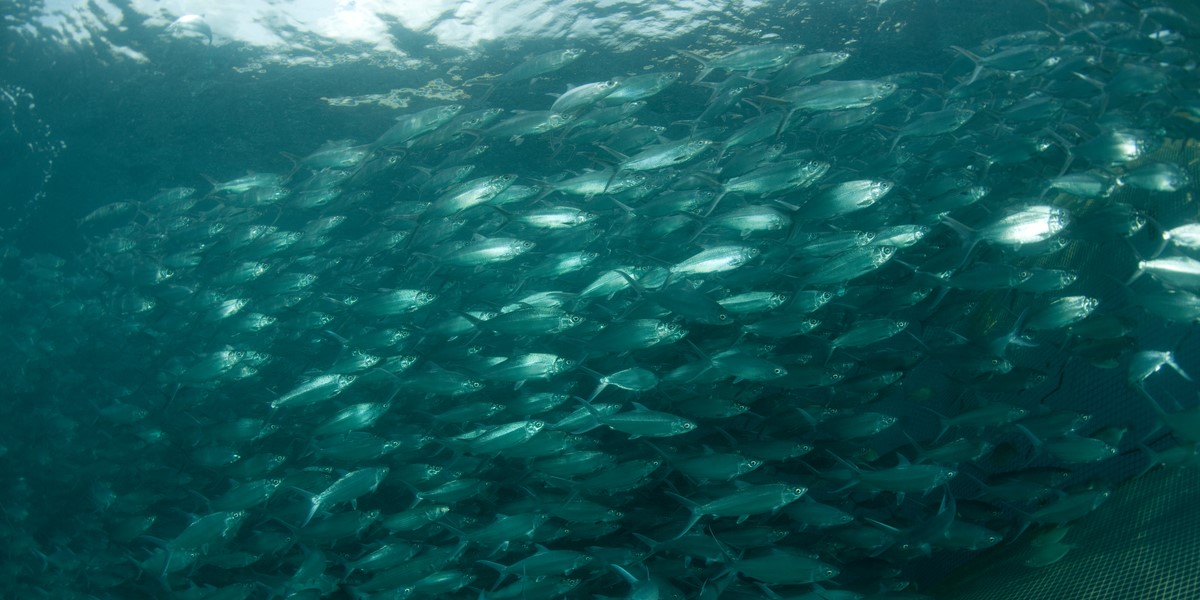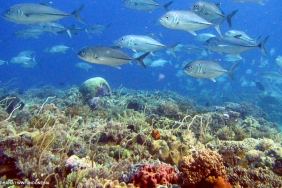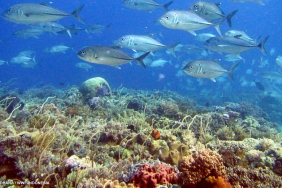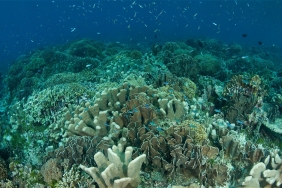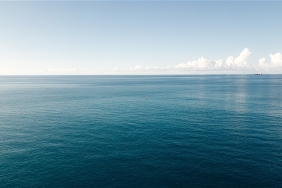WWF LAUNCHES "WISE SEAFOOD CHOICE" PUBLIC CAMPAIGN
Manado (30/05) - Natural resources are not always able to answer human demand without any effort to preserve them, including natural resources from the sea. This message was conveyed by the World Wide Fund for Nature (WWF-Indonesia) when it held a public campaign entitled "Wise Choosing Seafood" at Manado Town Square, Manado on May 30-31, 2011.
With the high potential of marine products, sustainable management and consumption patterns are needed to maintain the availability of these resources. This is because 55% of Indonesia's fish resources are overexploited, 24% moderately exploited and 21% unidentified (data from the Capture Fisheries Research Center-Ministry of Marine Affairs and Fisheries 2010).
Driven by the concern for Indonesia's marine sustainability, WWF seeks to build public awareness to start choosing seafood wisely, for example by socializing the latest version of the Seafood Guide. This handbook is a guide that lists marine species whose populations are still safe, increasingly limited and already threatened. The classification is differentiated using green, yellow and red color blocks which are expected to be a reference for the public in determining their consumption patterns in a more sustainable direction.
"We do not prohibit seafood lovers to stop consuming their favorite menu, but invite everyone to be wiser in choosing seafood so that its availability in the long term is guaranteed," explained Devy Suradji, Director of Marketing and Communication of WWF-Indonesia.
If the Seafood Guide is used to encourage public demand for sustainable seafood, then WWF uses a different approach to corporate partners who are tasked with answering the challenge. This effort is embodied in Seafood Savers, a multi-stakeholder forum that aims to encourage the implementation of sustainable fisheries practices by producers, retailers and financial institutions. Through the joint efforts of these seafood industry players, WWF seeks to realize the improvement of fisheries activities in Indonesia. This forum is expected to inspire more business practitioners and the government to jointly encourage sustainable fisheries practices for the preservation of ecosystems and marine resources.
"Seafood Savers seeks to accommodate the interests of industry and marine conservation simultaneously. In reality, there are many ways to make a company profitable without harming the environment. For example, by improving the quality of the catch through environmentally friendly fishing methods, processing, distribution, and more efficient packaging. This needs to be done to ensure the continuity of their business as well as the preservation of increasingly limited resources," explained Imam Musthofa, National Coordinator of WWF-Indonesia's Fisheries Program.
During the campaign period in Manado, WWF will hold a series of interactive events. Among others, environmental education activities for children, turtle ranger game, seafood guide quiz, sustainable seafood petition collection, photo essay exhibition, talk show with Riyanni Djangkaru, and performances from Indra Bekti and 3 in 1 band all discussing the theme of environmentally friendly seafood.
As a seafood enthusiast, Indra Bekti himself said, "The seafood that I like the most are shrimps, mussels, and crabs. Before getting to know seafood guide, I was ignorant of seafood consumption patterns, even though there are several types that should be avoided and reduced. For example, crabs or fish that are often taken for their eggs. Even though they are delicious, if we continue to consume their eggs, when will they have the opportunity to reproduce?"
The "Wise Choosing Seafood" activity will be held in three cities, namely Manado, Jakarta and Makassar. This activity is done to support WWF's marine conservation program throughout the year. It requires cooperation and support from all parties, including the government, the public, corporations, and media partners in preserving nature. As a city with tourism potential and seafood-based industries, Manado has a strategic role in determining the sustainability of Indonesia's marine resources.
Note to the Editor
About WWF
World Wide Fund for Nature (WWF) is an independent, global conservation organization founded in 1961 in Switzerland, with nearly 5 million supporters and a network active in more than 100 countries, including Indonesia. WWF-Indonesia's mission is to save biodiversity and reduce the ecological impact of human activities through various activities. More information about WWF can be accessed through the website www.panda.org; www.wwf.or.id, and website www.supporterwwf.org
About Seafood Campaign
The Seafood Campaign aims to increase national demand for sustainable seafood. WWF's effort is to encourage consumers to recognize the idea of sustainable seafood and be more selective in choosing seafood. One of the campaign instruments used is the Seafood Guide, a pocket book containing guidelines for choosing sustainable seafood. In addition, WWF also collects petitions and organizes activities in public spaces, including in Manado. This event is a collaboration between WWFIndonesia, Sariayu Martha Tilaar, Manado Town Square and Aryaduta Manado Hotel.
Seafood Guide can be downloaded through the following link:http://assets.wwfid.panda.org/downloads/seafood_guide_electronic_new.pdf
About Seafood Savers
Seafood Savers is an initiative by WWF-Indonesia to form a group of companies consisting of producers, exporters, importers and retailers engaged in the exploitation and trade of marine resources, as well as financial institutions that invest in marine resource businesses. There are currently seven companies engaged in the marine fisheries product business in Indonesia that have expressed interest in joining Seafood Savers. With support from WWF in Indonesia as well as regionally and internationally, the group will conduct campaigns that raise fisheries and marine issues. The group is expected to inspire more business practitioners to join and jointly promote sustainable fisheries practices for the preservation of marine ecosystems and resources. Companies wishing to join Seafood Savers need to go through eight stages towards official membership. The signing of the Memorandum of Understanding is the fourth stage where companies agree to the recommendations made by WWF to fulfill the minimum requirements of sustainable fisheries.

